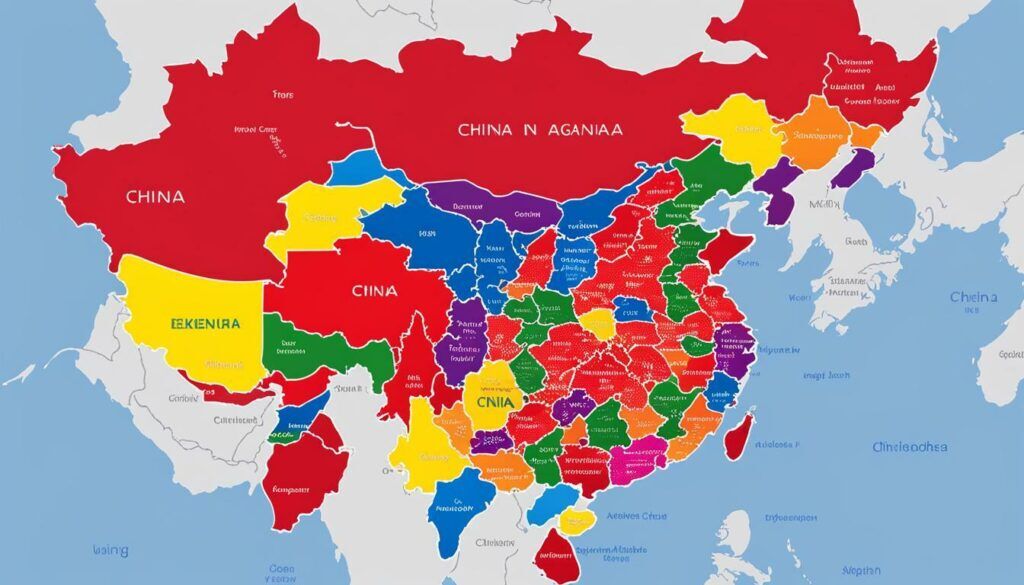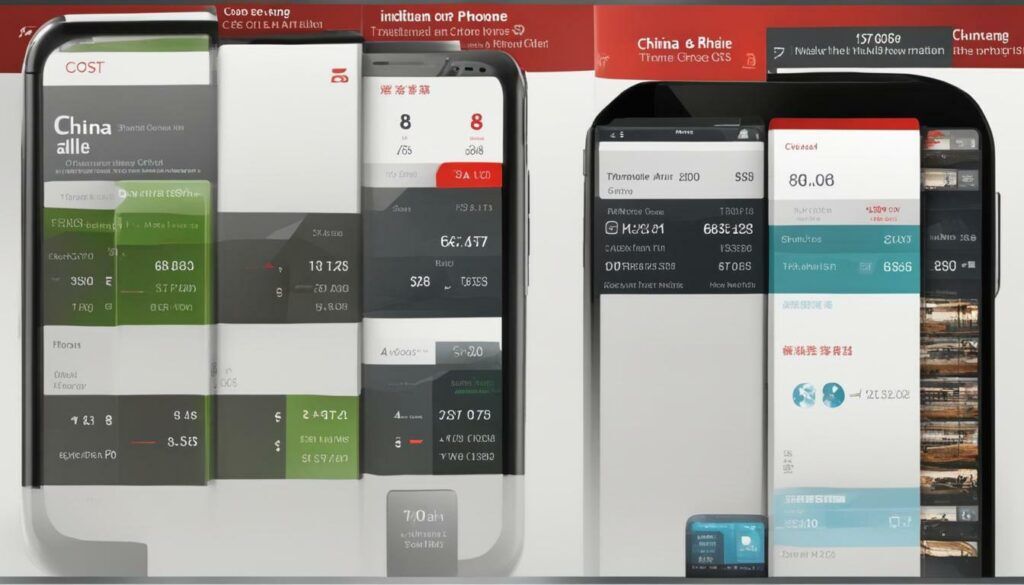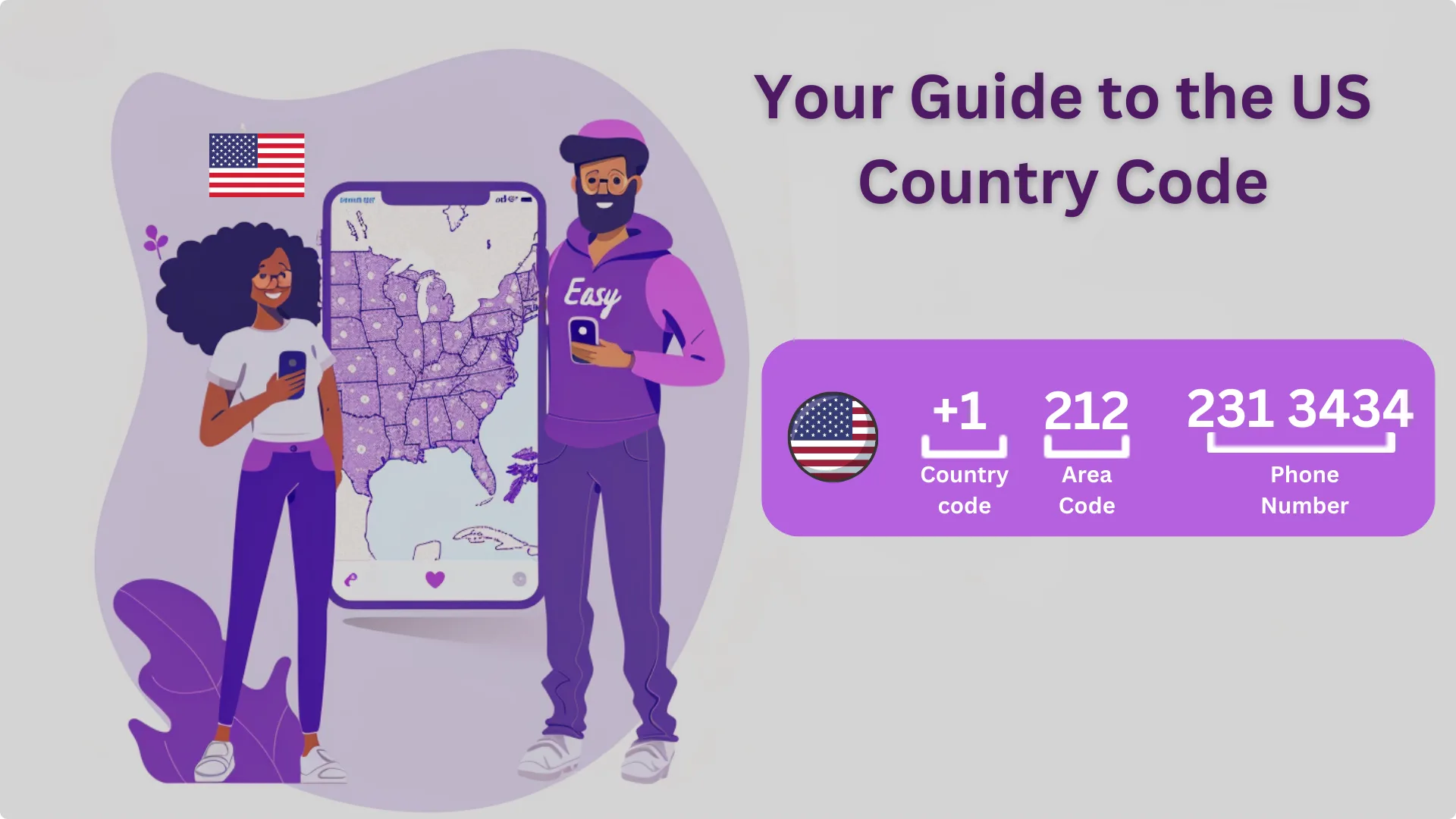Are you curious about the 86 phone number and how it works? In this comprehensive guide, we will unravel the mystery behind this Chinese phone code and explore how ringflow can make international calling a breeze.
- The 86 phone number is the country code for China.
- Chinese phone numbers can be landlines or cell phones, with different digit lengths.
- Different Chinese cities have specific area codes.
- There are various types of phone numbers in China, including local numbers, toll-free numbers, and 400 numbers.
- Using VoIP services like Ringflow can help businesses improve communication with China.
What is the 86 Phone Number?
The 86 phone number is the country code for China, and it is used when dialing Chinese phone numbers from outside the country. When making international calls to China, it is essential to include the country code in the dialing sequence to ensure the call reaches the intended destination. The country code serves as a unique identifier for China in the international telecommunications network.
China, with its vast population and growing economy, has become a crucial player in the global market. As a result, many businesses and individuals frequently need to communicate with contacts in China. Understanding the 86 phone number is an essential step in effectively establishing communication links with this prominent country.
To dial a Chinese phone number from outside the country, you typically start by entering the international access code, which is usually represented as a plus sign (+) or as the exit code (011 in the United States). This is followed by the country code 86, and then the area code and phone number of the desired recipient. By including the 86 phone number, you can accurately direct your international call to China.

Including the 86 phone number in your dialing sequence ensures that your call is routed to China. Whether you need to connect with business partners, friends, or family in China, understanding the significance of the 86 phone number is crucial for successful communication.
Dialing Chinese Phone Numbers
When calling China from the US, it is important to understand the correct dialing format for Chinese phone numbers, which includes the country code, area codes, and phone number formats. To make an international call to China, start by dialing the US exit code, which is 011, followed by the Chinese country code, which is 86. After that, you will need to enter the specific area code for the city or region you are calling, and finally, the phone number itself.
Chinese phone numbers can be either landlines or cell phones. Landline numbers are typically 6 to 8 digits long, while cell phone numbers are 11 digits long. It is important to note that different Chinese cities have different area codes, which can range from 2 to 4 digits. Some examples of major Chinese cities and their corresponding area codes include Beijing (10), Shanghai (21), Guangzhou (20), and Nanjing (25).
Here is an example of how to dial a Chinese phone number: to call a landline in Nanjing, you would dial 011-86-25-XXXX-XXXX, with the Xs representing the specific phone number you are dialing.
| Chinese City | Area Code |
|---|---|
| Beijing | 10 |
| Shanghai | 21 |
| Guangzhou | 20 |
| Nanjing | 25 |
Understanding the correct dialing format for Chinese phone numbers is essential for successful international communication with China. By following the proper dialing procedure and using services like Ringflow, businesses can ensure seamless and effective communication with their Chinese counterparts.

In China, there are different types of phone numbers, including landlines, cell phones, local numbers, toll-free numbers, and 400 numbers, each serving specific purposes.
Landline numbers are typically 6 to 8 digits long and are used for traditional telephone services. These numbers are usually assigned to a specific geographical area, such as a city or region.
Cell phones in China have 11 digits and are widely used for personal and business communication. With the rapid growth of mobile technology, cell phones have become an essential part of everyday life in China.
Local numbers in major Chinese cities have 2 or 3-digit area codes, followed by an 8-digit subscriber number. These numbers are used to make local calls within a specific city or region.
Toll-free numbers, indicated by the code (800), allow customers to call businesses for free. These numbers are commonly used by companies to provide customer support and other services without incurring any charges for the callers.
China also has 400 numbers, which are national numbers that can be reached from anywhere in the country. These numbers are often used by businesses for customer service or inquiries.
In summary, understanding the different types of Chinese phone numbers is essential for making effective and efficient calls to China. Whether it’s a landline, cell phone, local number, toll-free number, or 400 number, each serves a specific purpose in facilitating communication within and outside of China.

Major Chinese cities such as Beijing, Shanghai, Guangzhou, and Nanjing have specific area codes that are used when dialing phone numbers within these cities. Understanding these area codes is essential for making successful calls to these locations.
In Beijing, the area code is 10, while in Shanghai, it is 21. Guangzhou, on the other hand, has an area code of 20, and Nanjing has an area code of 25. These area codes, when combined with the country code (86) and the phone number, allow for accurate and efficient dialing to these cities.
When calling a landline or a mobile number in Beijing, for example, the complete phone number would be dialed as follows: 86-10-XXXX-XXXX. Similarly, for a landline or mobile number in Nanjing, the complete phone number would be dialed as 86-25-XXXX-XXXX.
Having the correct area code is crucial for connecting with the desired city and ensuring that communication flows smoothly. By familiarizing yourself with these area codes, you can navigate the Chinese phone system effectively and make seamless calls to major Chinese cities.

| Major Chinese Cities | Area Codes |
|---|---|
| Beijing | 10 |
| Shanghai | 21 |
| Guangzhou | 20 |
| Nanjing | 25 |
Knowing the area codes for major Chinese cities is essential for successful communication. By utilizing services like Ringflow, which provides unified voice, video, meetings, and messaging solutions, businesses can enhance their communication capabilities with China and improve overall productivity.
Issues with China Virtual Phone Numbers
While China virtual phone numbers offer convenience, there are certain challenges such as limited mobile access, lengthy setup times, and limited availability, which are being addressed by the VoIP industry in China. Virtual phone numbers allow businesses to establish a local presence in China without the need for physical offices, enabling them to effectively communicate with customers and partners in the country.
One of the main issues with China virtual phone numbers is the limited mobile access to toll-free numbers. While toll-free numbers are widely used in many countries, including the United States, they are less commonly used in China. This can restrict the accessibility of businesses using toll-free numbers, as many Chinese customers primarily rely on mobile devices for communication.
Another challenge is the lengthy setup times associated with acquiring virtual phone numbers in China. The process typically requires extensive documentation and verification, which can be time-consuming and bureaucratic. However, the VoIP industry in China is actively working to streamline this process and reduce the setup times for virtual phone numbers.
Additionally, the availability of local virtual phone numbers in China is limited. As the demand for virtual phone numbers increases, the supply of available numbers can become scarce, making it challenging for businesses to acquire the specific numbers they desire. However, efforts are underway to expand the pool of available virtual phone numbers to meet the growing demand.

| Type | Issue |
|---|---|
| Toll-Free Numbers | Limited mobile access |
| All Types | Lengthy setup times |
| Local Numbers | Limited availability |
The Benefits of VoIP Services like Ringflow
VoIP services like Ringflow offer a wide range of benefits, including unified communications, improved collaboration, and enhanced customer satisfaction when making business calls to China. With ringflow, businesses can streamline their communication processes, making it easier to connect with clients, partners, and colleagues around the world.
One of the key advantages of using ringflow is its ability to provide unified communications. This means that businesses can access voice, video, meetings, and messaging all in one platform. With Ringflow, you can make high-quality voice calls to China, conduct video conferences with colleagues in different locations, schedule and join online meetings, and even send instant messages to collaborate in real time.
Improved collaboration is another significant benefit of using ringflow for business calls to China. With features like screen sharing and file sharing, teams can work together seamlessly, regardless of their physical location. This makes it easier to share important documents, give presentations, and collaborate on projects, enhancing overall productivity and efficiency.
Moreover, using ringflow for business calls to China can lead to enhanced customer satisfaction. With features like call recording and call analytics, businesses can track and analyze their communication data, including call duration, call volume, and customer feedback. This information can help businesses identify areas for improvement and provide better service to their Chinese customers.

- VoIP services like Ringflow offer unified communications, improving collaboration and customer satisfaction for business calls to China.
- Ringflow provides voice, video, meetings, and messaging in one platform, simplifying communication processes.
- Features like screen sharing and file sharing enhance collaboration and productivity.
- Call recording and analytics enable businesses to track and improve their communication practices.
Table:
| Benefit | Description |
|---|---|
| Unified Communications | Access to voice, video, meetings, and messaging in one platform |
| Improved Collaboration | Features like screen sharing and file sharing enhance teamwork |
| Enhanced Customer Satisfaction | Call recording and analytics enable better service and feedback |
Tips for Making Business Calls to China
When making business calls to China, it is essential to follow cultural etiquette, schedule calls strategically, and maintain effective communication practices. Understanding the nuances of Chinese business customs can greatly enhance your interactions and leave a positive impression. Here are some tips to keep in mind:
1. Be mindful of cultural etiquette: Chinese culture places a strong emphasis on respect and hierarchy. Address your Chinese counterparts using their formal titles, such as Mr., Mrs., or Dr., followed by their last name. Always be polite and avoid interrupting or contradicting others during the conversation.
2. Schedule calls strategically: Consider the time difference between your location and China when scheduling business calls. It is best to avoid calling during Chinese holidays or weekends. Weekday mornings between 9 AM and 12 PM local time tend to be the most suitable for making business calls to China.
3. Maintain effective communication practices: Ensure that you speak clearly and concisely during the call, as language barriers may exist. It is recommended to use simple and straightforward language to avoid any misunderstandings. Active listening and taking notes can also help in capturing important details during the conversation.
Sample Table: Chinese Holidays
| Holiday | Date |
|---|---|
| Chinese New Year | Varies (between January and February) |
| Labor Day | May 1st |
| National Day | October 1st |
By adhering to these tips and leveraging reliable communication platforms like Ringflow, you can enhance your business calls to China and foster successful relationships with your Chinese counterparts. Remember, effective communication is key to achieving your business goals in the Chinese market.

The cost of calls to China can vary depending on factors such as carrier rates and whether the call is made to a landline or cell phone. Rates can range from as low as $0.01 per minute to as high as $3 per minute.
VoIP services like Ringflow offer lower-cost options for making calls to China, allowing businesses to save on international calling expenses. By utilizing VoIP technology, businesses can take advantage of more affordable rates and plans specifically designed for international calling.
With ringflow, businesses can enjoy cost savings without compromising on call quality or reliability. By using the VoIP platform, companies can make international calls to China at competitive rates, enabling efficient and effective communication with Chinese partners, suppliers, and customers.
| Type of Call | Cost per Minute |
|---|---|
| Landline to Landline | $0.01 – $0.50 |
| Landline to Cell Phone | $0.05 – $0.60 |
| Cell Phone to Landline | $0.10 – $0.80 |
| Cell Phone to Cell Phone | $0.10 – $1.00 |
These rates are approximate and may vary depending on the specific carrier and the calling plan chosen. It’s important for businesses to compare rates and plans offered by different VoIP service providers to find the most cost-effective solution for their international calling needs.

By leveraging the power of VoIP services like ringflow, businesses can not only save on their international calling expenses but also benefit from additional features such as call recording, call forwarding, and virtual phone numbers. These features can enhance communication capabilities and improve overall efficiency in conducting business with China.
Lower-Cost Options for Calls to China
To reduce costs when making calls to China, businesses can explore lower-cost options such as VoIP services like Nextiva, which offer competitive rates for international calling. VoIP, or Voice over Internet Protocol, allows you to make calls over the Internet, eliminating the need for traditional phone lines and reducing call costs significantly.
With Nextiva’s VoIP services, you can benefit from affordable international calling rates without compromising on call quality. Their advanced technology ensures crystal-clear voice transmission, making it feel like you’re having a conversation in person. Plus, Nextiva offers a unified communications platform that includes voice, video, meetings, and messaging, making it convenient and efficient for businesses to connect with their counterparts in China.
Moreover, VoIP services like Nextiva provide additional features that can enhance communication with China. These include call forwarding, call recording, virtual phone numbers, and more. These features not only improve connectivity with Chinese contacts but also streamline communication processes, making it easier for businesses to collaborate, share information, and build strong relationships.
Comparison of VoIP Services for International Calling
| VoIP Service Provider | International Calling Rates | Key Features |
|---|---|---|
| Nextiva | Competitive rates | Unified communications platform, call forwarding, call recording, virtual phone numbers |
| 8×8 | Cost-effective plans | Unlimited calling, video conferencing, team messaging, contact center solutions |
| RingCentral | Flexible pricing options | HD voice and video, team messaging, collaboration tools, integrations with popular business apps |
In conclusion, businesses looking for lower-cost options when making calls to China can benefit from the competitive rates and advanced features offered by VoIP services like Nextiva. By leveraging the power of internet-based communication, businesses can save on call costs while maintaining high-quality connections with their Chinese counterparts. It’s time to embrace the advantages of VoIP and enhance your international communication with China.
Improving Communication with China Using Ringflow
By utilizing ringflow’s all-in-one communication platform, businesses can enhance their communication capabilities with China, fostering better collaboration and customer satisfaction. With Ringflow, businesses can enjoy a seamless and integrated solution for voice, video, meetings, and messaging, all in one place.
One of the key benefits of ringflow is its versatility. Whether you need to make international calls, host virtual meetings, or exchange messages with colleagues or clients in China, ringflow has got you covered. This comprehensive platform eliminates the need for multiple communication tools, simplifying your workflow and enhancing productivity.
Moreover, ringflow offers reliable and high-quality connections, ensuring smooth and uninterrupted communication with your Chinese counterparts. Say goodbye to dropped calls or video conferences plagued by technical glitches. With ringflow’s advanced technology, you can enjoy crystal-clear audio and video quality, even over long distances.
| Benefits of Ringflow |
|---|
| Seamless integration of voice, video, meetings, and messaging |
| Elimination of the need for multiple communication tools |
| Reliable and high-quality connections |
| Enhanced productivity and collaboration |
| Improved customer satisfaction |
With ringflow, you can bridge the communication gap between your business and China, enabling efficient and effective collaboration. Whether you’re a multinational corporation or a small startup, ringflow provides the tools you need to connect with your Chinese partners, customers, and colleagues seamlessly.

Chinese Business Etiquette for Phone Calls
When engaging in business phone calls with Chinese counterparts, adhering to Chinese business etiquette is crucial, encompassing punctuality, formality, and cultural sensitivity. Time is highly valued in Chinese culture, so it is essential to be punctual for scheduled calls. Being late may be seen as disrespectful and could negatively impact the business relationship.
During phone conversations with Chinese colleagues or clients, it is important to maintain a formal tone and address individuals by their proper titles and last names. This demonstrates respect and professionalism. Additionally, using appropriate greetings and polite phrases, such as “ni hao” (hello) and “Xie xie” (thank you), can go a long way in building rapport.
Cultural sensitivity is crucial when communicating with Chinese counterparts. Being aware of Chinese customs and traditions, such as avoiding sensitive topics like politics or discussing personal matters, shows respect and helps establish a positive connection. Non-verbal communication is also important, as Chinese culture places emphasis on body language and facial expressions. It is advisable to maintain a composed and reserved demeanor during phone conversations.
Table: Chinese Business Etiquette Dos and Don’ts for Phone Calls
| Do’s | Don’ts |
|---|---|
| Be punctual for scheduled calls. | Be late for calls or keep counterparts waiting. |
| Use formal titles and last names when addressing individuals. | Use informal or familiar language. |
| Be respectful and polite in conversations. | Interrupt or speak over the other person. |
| Show interest in the other person’s culture and traditions. | Discuss sensitive topics like politics or personal matters. |
By following these guidelines for Chinese business etiquette during phone calls, you can create a positive impression and strengthen business relationships. Demonstrating respect, understanding, and cultural sensitivity will help foster successful communication and collaboration with your Chinese counterparts.

VoIP services, like 8×8, play a significant role in enhancing international communication by providing businesses with a unified platform for various communication channels. With VoIP, businesses can seamlessly integrate voice, video, meetings, and messaging, enabling efficient and effective collaboration across borders.
Through VoIP services, businesses can enjoy the benefits of cost savings and improved connectivity. Traditional phone systems often incur high international calling rates, but VoIP allows for more affordable communication through internet-based connections. This can result in significant cost reductions for businesses, especially those that frequently engage in international calls.
Moreover, VoIP services like 8×8 offer advanced features, such as call forwarding, call recording, and voicemail transcription, which can streamline communication processes and enhance productivity. These features enable employees to manage their calls more efficiently, ensuring that important messages are received and responded to promptly.
| Benefits of VoIP Services for International Communication |
|---|
| Cost savings through internet-based calling |
| Improved connectivity and call quality |
| Integration of voice, video, meetings, and messaging |
| Advanced features for streamlined communication |
By leveraging VoIP services like 8×8, businesses can overcome communication barriers and expand their reach to international markets. This can lead to improved collaboration with partners, clients, and colleagues across different time zones and geographical locations. With a unified communication platform, businesses can enhance their global presence, strengthen relationships, and achieve greater success in the international marketplace.

With ringflow, businesses can experience numerous benefits for international calling, such as cost savings, enhanced connectivity, and streamlined communication processes. By leveraging Ringflow’s advanced VoIP technology, businesses can reduce their international calling costs significantly. Traditional phone services often charge exorbitant rates for international calls, but with ringflow, businesses can take advantage of affordable and competitive pricing options.
In addition to cost savings, ringflow offers enhanced connectivity for international calls. The platform utilizes cutting-edge network infrastructure and technologies to ensure crystal-clear voice quality and minimal call disruptions. This means that businesses can communicate with their international partners and clients without the frustration of dropped calls or poor audio quality. Ringflow’s commitment to reliable and stable connections makes it an ideal choice for businesses that rely on frequent international communication.
Furthermore, ringflow streamlines communication processes by offering a comprehensive suite of features. Businesses can easily access voice, video, meetings, and messaging capabilities all in one platform. This eliminates the need for multiple communication tools and simplifies the workflow for international calls. With ringflow, businesses can seamlessly switch between different modes of communication, ensuring efficient and effective collaboration with international counterparts.
Benefits of Ringflow for international calling:
- Cost savings on international calls
- Enhanced connectivity with reliable connections
- Streamlined communication processes with a comprehensive platform
- Crystal-clear voice quality for clear communication
- Advanced network infrastructure for minimal call disruptions

In conclusion, ringflow offers significant advantages for businesses engaging in international calling. With its cost savings, enhanced connectivity, and streamlined communication processes, ringflow is a powerful tool for businesses looking to expand their global reach. By leveraging its advanced VoIP technology, businesses can establish seamless communication channels with their international partners and clients, fostering collaboration and driving success.
Conclusion
In conclusion, understanding the 86 phone number and utilizing services like Ringflow can greatly simplify international calling to and from China while offering a range of benefits for businesses. To make calls to China from the US, it’s important to dial the country code (86), followed by the area code and phone number.
Chinese phone numbers can be either landlines or cell phones, with different lengths depending on the type. Each Chinese city has its own area code, and some major cities include Beijing (10), Shanghai (21), Guangzhou (20), and Nanjing (25).
While there are different types of phone numbers in China, including local numbers, toll-free numbers, and 400 numbers, the VoIP industry in China is working to improve connectivity and overcome the limitations associated with virtual phone numbers.
To enhance communication with China, businesses can consider using VoIP services like ringflow, which provide one platform for voice, video, meetings, and messaging. These services can help businesses reduce costs, increase customer satisfaction, and streamline communication processes. Additionally, it’s important to be aware of Chinese business etiquette when making business calls to China, such as being punctual, using formal titles, and practicing cultural sensitivity.
By understanding the 86 phone number and utilizing services like ringflow, businesses can navigate international calling to and from China more efficiently, making it easier to establish and maintain connections with Chinese partners, clients, and customers.




